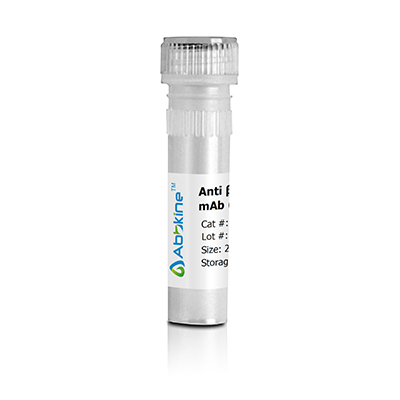SMAD4 encodes a member of the Smad family of signal transduction proteins. Smad proteins are phosphorylated and activated by transmembrane serine-threonine receptor kinases in response to TGF-beta signaling. The product of SMAD4 forms homomeric complexes and heteromeric complexes with other activated Smad proteins, which then accumulate in the nucleus and regulate the transcription of target genes. This protein binds to DNA and recognizes an 8-bp palindromic sequence (GTCTAGAC) called the Smad-binding element (SBE). The Smad proteins are subject to complex regulation by post-translational modifications. Mutations or deletions in this gene have been shown to result in pancreatic cancer, juvenile polyposis syndrome, and hereditary hemorrhagic telangiectasia syndrome.
Smad4 Polyclonal Antibody detects endogenous levels of Smad4 protein.
Optimal working dilutions should be determined experimentally by the investigator. Suggested starting dilutions are as follows: WB: 1:500-1:2000, IHC-p: 1:100-1:300, IF: 1:200-1:1000, ELISA: 1:10000. Not yet tested in other applications.
Smad4 Polyclonal Antibody product listed herein is for research use only and is not intended for use in human or clinical diagnosis. Suggested applications of our products are not recommendations to use our products in violation of any patent or as a license. We cannot be responsible for patent infringements or other violations that may occur with the use of this product.
Find more details at http://www.abbkine.com/product/smad4-polyclonal-antibody-abp55163.
bio-equip.cn




